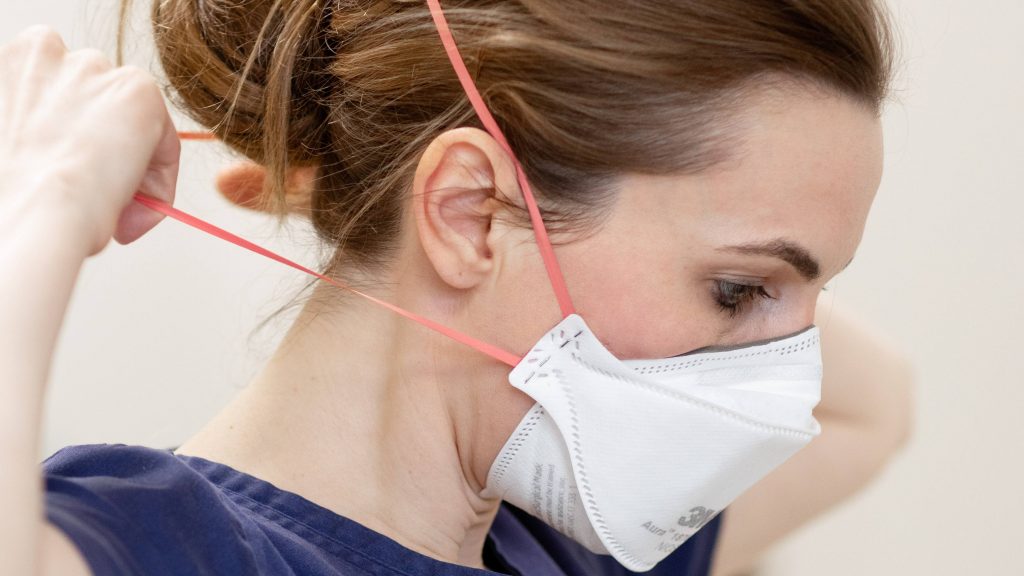-
COVID-19
Treating skin irritations from wearing face masks

Since many people are wearing face masks because of COVID-19 pandemic requirements, skin irritations on the face might be more prevalent.
"People are getting friction and irritation across their nasal bridge, behind their ears and perhaps under their chin," says Dr. Dawn Davis, a Mayo Clinic dermatologist. "That happens because of natural wear but also because the masks are tight, which is well-intentioned, but can strangulate the skin."
She says the mask should not be loose and should be worn firmly against the skin, but not so tight it bruises the skin.

Dr. Davis also recommends using zinc oxide. "That's the white hypoallergenic chemical that's in unscented diaper paste," she says. "It has very nice anti-inflammatory properties, and you can put a thin layer across your nasal bridge, behind your ears or under your chin — in places where the mask will rub."
She says that serves as a barrier to the friction without affecting or decreasing the effectiveness of the mask.
Dr. Davis says the first step for mask use and sensitive skin is after you've washed and patted your face dry, apply hypoallergenic moisturizer that's identified as face moisturizer. Apply the lotion or cream twice, leaving a thick layer.
"Then do a vinegar soak with a washcloth and lay it across your face for about 15 minutes in the areas that are irritated," says Dr. Davis. Her recipe for the vinegar soak is to put a teaspoon of white vinegar in a glass or small bowl of warm water, soak a clean washcloth, then rest it on your face.
"Repeat that two to three times a day, if possible, and you'll find that this humidifying method is very helpful," she says.
Also, skin issues on the face and neck that are not related to COVID-19, where the mask rests or rubs, are likely to be exacerbated by the friction of the mask and sweating, since some people get warm wearing them. Examples include acne, rosacea and psoriasis.
For these concerns, Dr. Davis encourages people to:
- Wash the face gently with soap and water, twice daily.
- Use medications as directed.
- Consult your dermatologist or primary health care provider if a new rash erupts, or if the current skin condition changes appearance or is not responding to treatment.
Dr. Davis also stresses washing cotton face masks to keep them clean. She says washing by hand is gentler on the mask. However, remember to wash adequately with soap and hot water.
Dr. Davis offers other reminders, including:
- Replace ties or elastic, as needed, if they wear.
- Replace the mask if it tears or develops holes.
- Wear the mask over the nose and mouth — not just the mouth.
Don't forget about potential irritation behind the ears and under the chin.
Information in this post was accurate at the time of its posting. Due to the fluid nature of the COVID-19 pandemic, scientific understanding along with guidelines and recommendations may have changed since the original publication date.
Check the Centers for Disease Control and Prevention website for additional updates on COVID-19. For more information and all your COVID-19 coverage, go to the Mayo Clinic News Network and mayoclinic.org.







